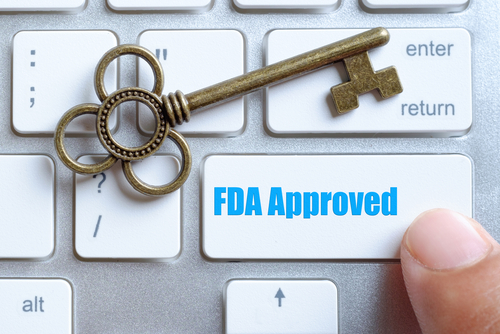The U.S. Food and Drug Administration has approved Opdivo (nivolumab) to treat patients with metastatic small cell lung cancer (SCLC) who failed to respond to platinum-based chemotherapy and at least one other line of treatment.
This approval makes Opdivo, developed by Bristol-Myers Squibb, the first new medication in almost 20 years for this specific subset of patients, as well as the first and only immunotherapy option for them.
Granted under accelerated approval, the FDA’s decision was based on positive results of the ongoing Phase 1/2 CheckMate-032 clinical trial (NCT01928394), which is evaluating Opdivo in patients whose disease progressed after platinum-based chemotherapy.
“At Bristol-Myers Squibb, we recognize the critical need to provide patients with cancer therapies that may offer more durable responses — particularly for those living with hard-to-treat, aggressive diseases like small cell lung cancer,” Sabine Maier, MD, development lead, thoracic cancers, at Bristol-Myers Squibb, said in a press release.
“This approval builds on our heritage of bringing Immuno-Oncology therapies to patients with other types of thoracic cancers. It also reinforces our commitment to bringing transformative treatments to patients in urgent need of effective new options,” Maier said.
Opdivo is a programmed death-1 (PD-1) immune checkpoint inhibitor designed to harness the immune system to help restore an anti-tumor immune response.
CheckMate-032 is a large trial evaluating the effectiveness of Opdivo by itself or combined with another immune checkpoint inhibitor, Yervoy (ipilimumab), in patients with advanced or metastatic solid tumors, including SCLC, as well as triple-negative breast cancer, gastric cancer, pancreatic adenocarcinoma, bladder cancer, and ovarian cancer.
The trial included 245 patients with SCLC whose disease progressed after platinum-based chemotherapy.
Opdivo’s effectiveness was shown in 109 patients who received 3 mg/kg of Opdivo administered into the vein over one hour every two weeks. Patients received the treatment regardless of their PD-L1 expression level, and treatment was maintained until disease progression or unacceptable toxicity.
Median duration of treatment was one month, with a range of zero to 44.2-plus months. Of the patients, 17% of the patients were treated for more than six months, and 9% for more than a year.
Tumor response to the therapy began six weeks after the first dose and was maintained for the first 5.5 months (24 weeks). After that, monitoring was performed every 12 weeks.
Results showed that 13, or 12%, of the 109 patients responded to the treatment independent of their PD-L1 expression. One patient had a complete response, and 11%, or 12 patients, had a partial response.
The median duration of the response was 17.9 months, ranging from three to 42.1 months. In 10% of the patients, the treatment had to be discontinued, and 25% of the patients skipped one dose due to an adverse reaction.
Severe adverse reactions occurred in 45% of treated patients.
The FDA-approved dose is 240 mg administered every two weeks into the vein until disease progression or unacceptable toxicity.
“While Immuno-Oncology innovations have dramatically changed how oncologists approach certain cancers, we have had limited progress for patients with small cell lung cancer,” said Leora Horn, MD, associate professor of medicine at the Vanderbilt University Medical Center in Nashville, Tennessee. “Today’s approval of nivolumab is particularly exciting considering it is the first checkpoint inhibitor approved for these specific patients, and now we can finally treat this devastating disease from a different angle.”
“Small cell lung cancer can be a very challenging disease, particularly for those who have already been through multiple types of treatment, as most patients relapse within a year of diagnosis,” said Andrea Ferris, president and chairman of LUNGevity Foundation. “This approval marks a major milestone for the patients touched by this unrelenting disease and may motivate them to pursue further treatment where there previously were no other approved options.”
Opdivo is approved in more than 60 countries, including the U.S., the European Union and Japan. Alone or in combination, it is approved to treat a number of advanced cancers, including certain melanomas, renal cell carcinomas, and non-small cell lung cancers.


